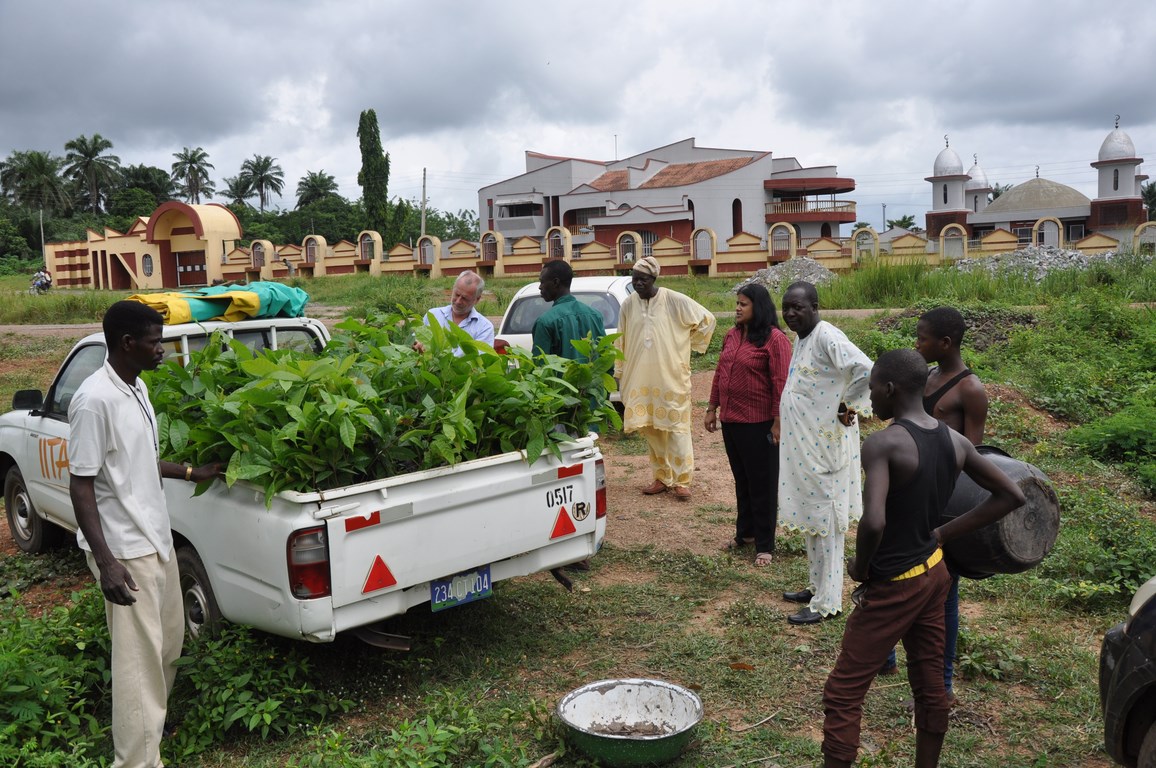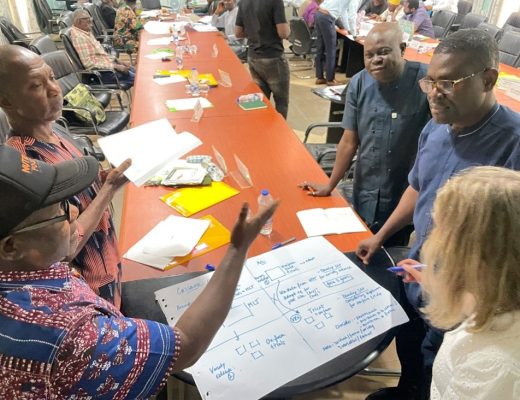IITA is working with local, regional, and international partners to strengthen its cocoa improvement program. In June this year, the germplasm of 14 elite parental clones was acquired from the Cocoa Research Institute of Nigeria (CRIN). These are clones used in the development of hybrids.
Additionally, IITA has been successful in acquiring 2,000 cocoa seedlings of a popular hybrid from Osun State and has been involved in a World Cocoa Foundation (WCF)-funded project to fingerprint 10,000 accessions of cocoa germplasm using SNP markers. These accessions came from breeders’ collections and seed gardens in five participating countries (Nigeria, Ghana, Cameroon, Côte d’Ivoire, and Togo).
“This opens an opportunity for IITA to explore and contribute towards the research and development of this crop,” said Dr Ranjana Bhattacharjee, Molecular Geneticist, who has been working on cocoa research and development. “IITA is establishing the parental clones to duplicate for safety and for experiments using the hybrid population. I am sure we can plan many more exciting and joint initiatives on this crop with CRIN and other partners.”
Ranjana said that IITA is trying to build a strong cocoa research program and that we are working with some progressive young farmers whose dream is to become the first chocolatiers in Nigeria.
Tied to this, from 11 to 14 November, the WCF African Cocoa Initiative (ACI), in conjunction with the African Cocoa Breeders Working Group (ACBWG), is organizing a symposium (http://worldcocoafoundation.org/regional-symposium-2014/) in Ibadan, Nigeria, on the next generation of cocoa research for West and Central Africa. Ranjana serves on the local organizing committee.
The symposium will cover recent innovations in research priorities for cocoa improvement across both the public and private sectors. It will provide opportunities for sharing experiences, identifying needs, and developing national, regional, and global alliances to unleash the potential of the crop.
It will also provide a platform for consultation and the development of a regional strategy for improving the cocoa sector based on the following: genetic enhancement; pests and diseases, and mitigation of risks of climate change; postharvest handling and quality; mechanization/labor-saving technologies; markets, institutions, and policies; and value chain analysis.



No Comments